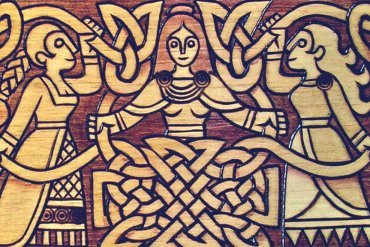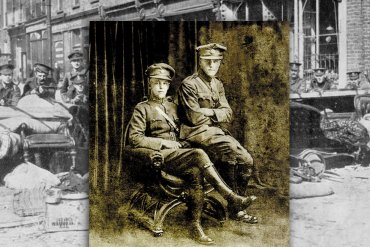The IMF and the World Bank, were created at a meeting of global financiers and politicians held at Bretton Woods, New Hampshire, in 1944. Their announced goals were to facilitate international trade and to stabilize the exchange rates of national currencies. The unannounced goals were quite different. They were the elimination of the gold-exchange standard as the basis of currency valuation and the establishment of world...
Rothbard’s “Egalitarianism as a Revolt Against Nature” displays a remarkable organic unity: the book is much more than the sum of its parts. Points made in the various essays included in the book mesh together to form a consistent worldview. The system of thought set forward in these essays, moreover, illuminates both history and the contemporary world. In the book’s initial essay, whose title has been...
Few people truly understand the complexities involved with central banking. Most people throughout modern history have made the terrible mistake of not understanding the relevance of their nation’s central banking scheme and a centrally planned economy to their own wealth preservation. Best example is the American FED. But America is not unique in this economic plunder, as private international banking interests have long sought to collude with governments in an effort to gain the privilege of controlling the issuance of […]...
It was Rodin who stated that “Man never invented anything new, only discovered things.” Although it’s correct to say that certain symbols have been man-made for a particular purpose, it’s just as correct to argue that everything is somehow inspired by the natural world around us, by the forms of nature, plants, animals, the elements. Even a reaction against the fluid forms of nature is usually...
Women today tend to trivialize goddess Frigg’s functions. If you try to unravel the different levels, connections, storylines and hidden meanings in Maier files, getting into the world of Disir and ancient European goddesses can be very helpful. An interesting read is the original work of Mrs. Karlsdóttir. Mrs. Karlsdóttir in her book Norse Goddess Magic states that women today tend to trivialize goddess Frigg’s functions. The main...
The strategies for taking over free governments. One might ask today, years after the fall of the Berlin Wall: Why would anyone want to read a report by a communist about the revolutionary takeover of Czechoslovakia? A country that no longer exists? The Czechs are capitalists now, remember? Such a question reveals a number of erroneous assumptions that this book convincingly refutes. The assumption for instance that the leaders of the former Communist states of Eastern Europe were wedded to […]...
‘The sovereign nations of the past can no longer solve the problems of the present: they cannot ensure their own progress or control their own future. And the Community itself is only a stage on the way to the organised world of tomorrow.’ Closing Words of Jean Monnet’s Memoirs ‘Europe’s power is easy to miss. Like an “invisible hand” it operates through the shell of traditional...
With the Dublin Brigade tells the story of one man’s role in the Irish War of Independence. First published in 1929, the author, Charles Dalton, was but a young man, only twenty-six years old, when he decided to write about his experiences during the conflict that resulted in Ireland winning independence, although not full independence, from Great Britain. James Francis Dalton Dalton was born in January...
Out from a place called Silicon Valley came the modern-day hit parade. Eye-popping new technologies, gadgets that inspired and delighted us, discoveries promising to raise us to levels of prosperity unlike anything the world has ever known. Busloads of kids who’d once journeyed to Hollywood in search of fortune and fame now found their way to San Jose, Cupertino, and Mountain View, California. Big Tech They came to companies named Facebook, Google, Amazon, and Apple. Companies that were bringing the […]...
‘It’s a beautiful thing, the destruction of words.’ from Nineteen Eighty-Four (1949) In the low-ceilinged canteen , deep under ground, the lunch queue jerked slowly forward. The room was already very full and deafeningly noisy. From the grille at the counter the steam of stew came pouring forth, with a sour metallic smell which did not quite overcome the fumes of Victory Gin. On the far side of the room there was...
In a world that sometimes seems enamored with central planning and government control, Friedrich Hayek’s ideas on liberty and individualism continue to shine as a beacon of hope and reason. His seminal work, “The Road to Serfdom,” serves as a stark warning against the perils of planned societies and is a testament to the enduring importance of defending individual freedom. Hayek’s Rejection of Planned Societies: Friedrich...
Pavlov made a significant discovery: the conditioned reflex could be developed most easily in a quiet laboratory with a minimum of disturbing stimuli. Every trainer of animals knows this from his own experience; isolation and the patient repetition of stimuli are required to tame wild animals. Pavlov formulated his findings into a general rule in which the speed of learning is positively correlated with quiet and isolation. The totalitarians have followed this rule. They know that they can condition their […]...













